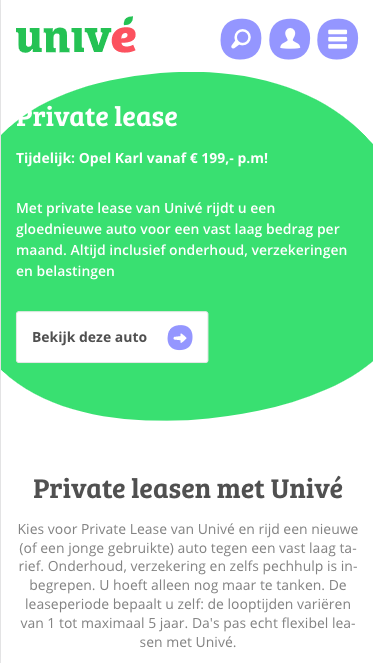Univé implements strategic innovation to create a new line of business
Veilig Wonen
Prevent damage from fire, water, and electricity or cover damages from burglary with a Veilig Wonen subscription. For example, opt for an alarm system, sewer service or central heating maintenance.
Legal Assistance on Demand
With Legal Assistance on Demand, Univé helps its customers with tailor-made legal assistance.
Private Lease
With private lease from Univé, you can drive a brand new car for an extremely low monthly payment. Always including maintenance, insurance, and taxes.


Find everything you need to know about this use case right here
Find everything you need to know about this use case right here
Find everything you need to know about this use case right here

© Copyright 2025. All rights reserved.